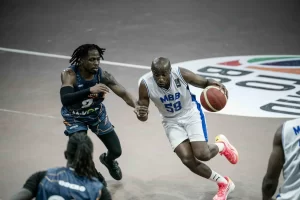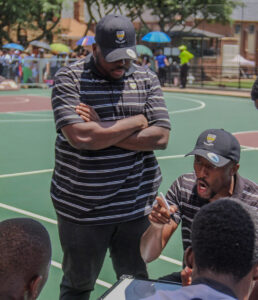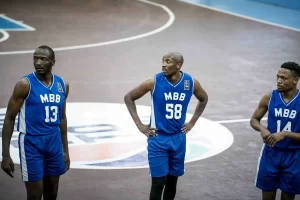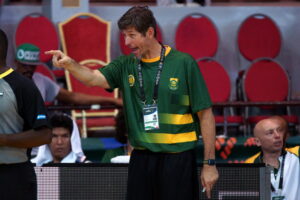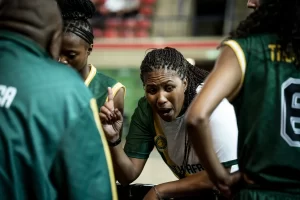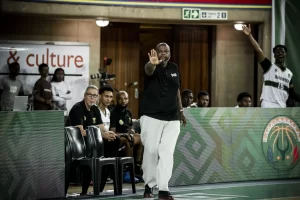Chona holds off retirement talk for shot at BAL qualification
CHONGO Chona pictured Season 5 of the Basketball Africa League (the BAL) as the stage where he would bid goodbye to his playing career, but it was not to be as the proverbial needle burst that bubble.
Last year’s Road to BAL Elite 16 expedition in Nairobi, Kenya, was disappointing for Matero Magic and left 34-year-old Chona with a chip on his shoulder, which led to him doing a U-turn on retirement and vowing to make things right. Fortunately for Chona, the Tamanga Boys will have another run at the Road to BAL later in the year, after clinching a 12th domestic national championship.
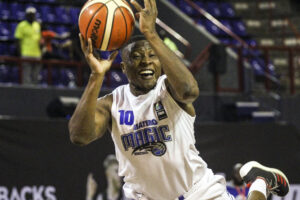
Chona, known as Stizzy in Zambian basketball circles, says consistency has been key to Matero’s success. They have also adapted after losing their bigs in previous seasons.
“It’s all about consistency and hard work… Never ever being complacent. Twelve titles are a lot, especially considering the past two seasons. We have lost some players in the last two years. Our centres Douglas (Kandulu) and Miles (Ndalama) got contracts after past Elite 16 competitions. We had challenges in the local league following the departures of those players,” said Chona. “… But getting the 12th title for Matero is an amazing feeling. A feeling of what hard work and consistency can achieve.”
The former UNZA Pacers player credited Manuel Silva, Matero’s coach in last year’s Road to BAL, for setting them up for success for the remainder of the domestic season. Chona says another ingredient that led to the championship was trust among teammates.
“We relied on each other (this season), especially given the challenges we faced with the playing personnel. Matero Magic has always been a dominant team in the post position in the league, but with the two bigs gone, we had to rely on each other more,” said the former Zambia international.
Chona expanded on what Angolan coach Silva left behind during his brief stay at the Tamanga Boys.
“I think Manuel Silva’s influence still impacted the team. He was with us from the Road to BAL first stage in Zimbabwe and the Elite 16 in Kenya,” said Chona. “I feel the knowledge he gave and being able to execute what he taught changed things for us. He elevated our game by introducing cardinal things like discipline, how to play better as a team, respecting the game and most importantly, enjoying it. So, those are the lessons we took, and they led us to this championship.
“He (Silva) may not have been there for the title run… But he was there in spirit. He is a good coach. I am glad I got a chance to work with him.”
View this post on Instagram
Recalling the Road to BAL, Chona believes teams always strive to improve at every stage of qualification which was not the case with the Zambian club. Matero finished the preliminary stages with an impressive 5-0 record but bowed out winless in the Elite 16.
“We have played Urunani and Oilers before, and the losses were close. When we played both teams last year, we lost by huge margins. It shows that every year is different in Road to BAL… Teams are always improving – it’s rare that they do not upgrade,” said Chona. So you can’t say we played Urunani last year and lost by nine. We almost had them. Complacency cannot be a factor at any level. Every game (in the Road to BAL) must be approached as a final.
“So complacency crept in because we looked at previous results, and we had an upgraded roster, so we thought things would be easy, but it wasn’t. We have to play like it is the last time we will play in these tournaments.”
Given Chona’s latter statement and how he imagined hanging up his sneakers not coming to pass, he feels he has enough in the tank to have another go at trying to help Matero qualify for the BAL.
“This was supposed to be my last season with Matero Magic and basketball. I wanted to take a different role, maybe in management, to see how I can continue impacting the game, not only for Matero and the country too,” said Chona. “After what happened at the Elite 16, a part of me says I am not done.
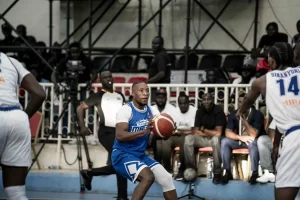
Chona says along with the physical toll the continental competition took, it also drained him emotionally and he questioned whether it was still worth it to continue playing.
“I didn’t have a good run in Kenya. I got injured in the first game against Urunani. It changed the tournament for me. I felt like I let down my club, teammates and country,” said Chona. “I felt like it was time for someone else to take the baton. So when we came back (from Kenya), I missed a couple of games in the season.
“I think I had to ask myself why I am playing. I also got messages from young kids telling me they were proud of the team for getting to that level. So I had to ask myself, ‘I know what I did to get my body right for this competition, am I willing to do it again and do it way better and at a higher level than last year?'”
Following the introspection Chona decided to make some changes to his game and reiterated that his career is far from done.
“Even when we got the (domestic) playoffs, I decided to take a different role… Everybody wants to score, but we can do other things like going for that rebound, making that stop or that extra dish to a teammate in a better position to score. So those are the things I tried, and things turned out great in the playoffs. So, as things stand, I want to give the BAL another go. Job not done,” concluded Chona.
It’s impressive to see Chona feeling more motivated and matching that motivation with the work needed to be successful. As Matero plot their qualification to the BAL, they will need players like Chona, who put the team first and can adapt to change when necessary.
Chona holds off retirement talk for shot at BAL qualification Read More »


